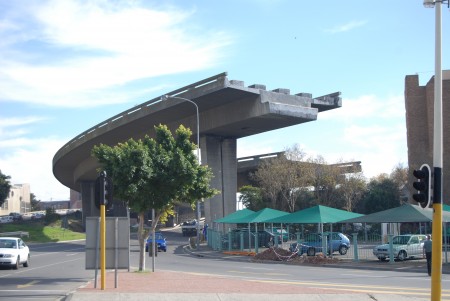
The African National Congress (ANC) ruling party of South Africa did not inherit a failed state in 1994, and after 21 years of rule, are progressively turning the country into chaos. The 1985 Rubicon speech by P. W. Botha raised political risks for the country, the ruling National Party (NP) and business. In 1986, the ANC party became concerned that the country was fast becoming a failed state. The liberation movement realized that inheriting a failed state would destroy all chances of bringing about desired development upon assumption of power of South Africa.
At that time, the NP controlled all state resources, power, and the military, and the ANC negotiated a peaceful transition from a position of weakness. The process of political reform caused rifts between the Afrikaners. The hardliners, led by President P.W. Botha and top business executives, had a stake in the initial talks. At the upper part of the ANC’s mind was to inherit a country with the high potential to meet the needs of the poor masses, who were the only support base of the movement.
What options did the ANC have? Did they have to risk the scorched earth retreat by Afrikaners and adopt a hard line approach towards negotiations? The ANC received lessons from some African countries, especially those that were colonized by Portugal, where the infrastructure was destroyed as it lost power. Some of its colonies were left in the dark figuratively and practically. Therefore, it is easy to say that the ANC conveniently sold out, as if it was in complete control of all levers of power and influence. It was more about getting maximum benefit from an apparently complicated situation.
The interim agreement, which is called a sunset clause, was to guarantee white public servants, police, and army employees full-time employment between 1994 and 1999. This agreement was necessary because most senior and middle management positions were held by white employees. The ANC needed the whites to stay on while a smooth transition and hand over to black control was advancing. It was necessary because if the ANC did not have the expertise in these fields, the ruling party would have destroyed the system. If the ANC told nurses, teachers, post office clerks, water engineers, electricians, and all essential workers that they had a week to leave, there would have been an inherited chaos.
Freedom starts with understanding the crux of the colonial system and then designing and developing its direct opposite – not primitive methods to bring about liberation. The ANC could not be a liberator organization without a liberator theory. The set of communist clichés borrowed from the West have never worked in Africa; nationalization and all the Populists represented no path to freedom but the state capitalist model. The theory that the ANC was revolutionary and changed course somewhere is a fantasy. South Africa is no different from anywhere in Africa; the elites jump into the shoes of the retreating colonists and assume it will be easy to turn the entire country around. The ANC may have dropped into the shoes and, by doing so, have become colonialists, which is what neocolonialism is about: indigenization.
Shame the devil, as the ANC got out with nothing from those negotiations other than Mandela as president of South Africa. The National Party, the Democratic Alliance, and the Bantustan leaders swept the table clean. The ANC did not know what it was doing at the negotiating table other than accepting the power that was being transferred at the insistence of the United States. However, they did not inherit a failed state, and no one can say the ANC sold out because it did not carry anybody’s mandate. The ANC was negotiating for itself. The National Party and apartheid-opposition political parties of South Africa got a mandate through the referendum.
One cannot help but sympathize with the rhetoric of labeling the ANC as the grandest traitor of the lot. The fact is that transition is a process, and it may take years to reverse the injustices of apartheid. Sadly, the very same proponents of this reality are swimming in a pool of wealth that took many around the world to amass over decades. One is bound to make an unfair statement that the masses were sold down the river. If reversing the imbalances of the past is a long, cumbersome process, why are so many in government living in opulence? Can anybody blame the Economic Freedom Fighters for propagating such a populist discourse? In politics, unfortunately, perception eventually becomes a reality. The reality is, the majority in South Africa are beginning to feel as if they have been sold down the river, while the ANC politicians and their goons continue to disprove that poverty can be reversed overnight. Turning South Africa into a failed state appears to be the goal of the ruling party.
Opinion by Laura Oneale
Edited by Jennifer Pfalz
PUBLISHED ON THE GUARDIAN LV -
No comments:
Post a Comment